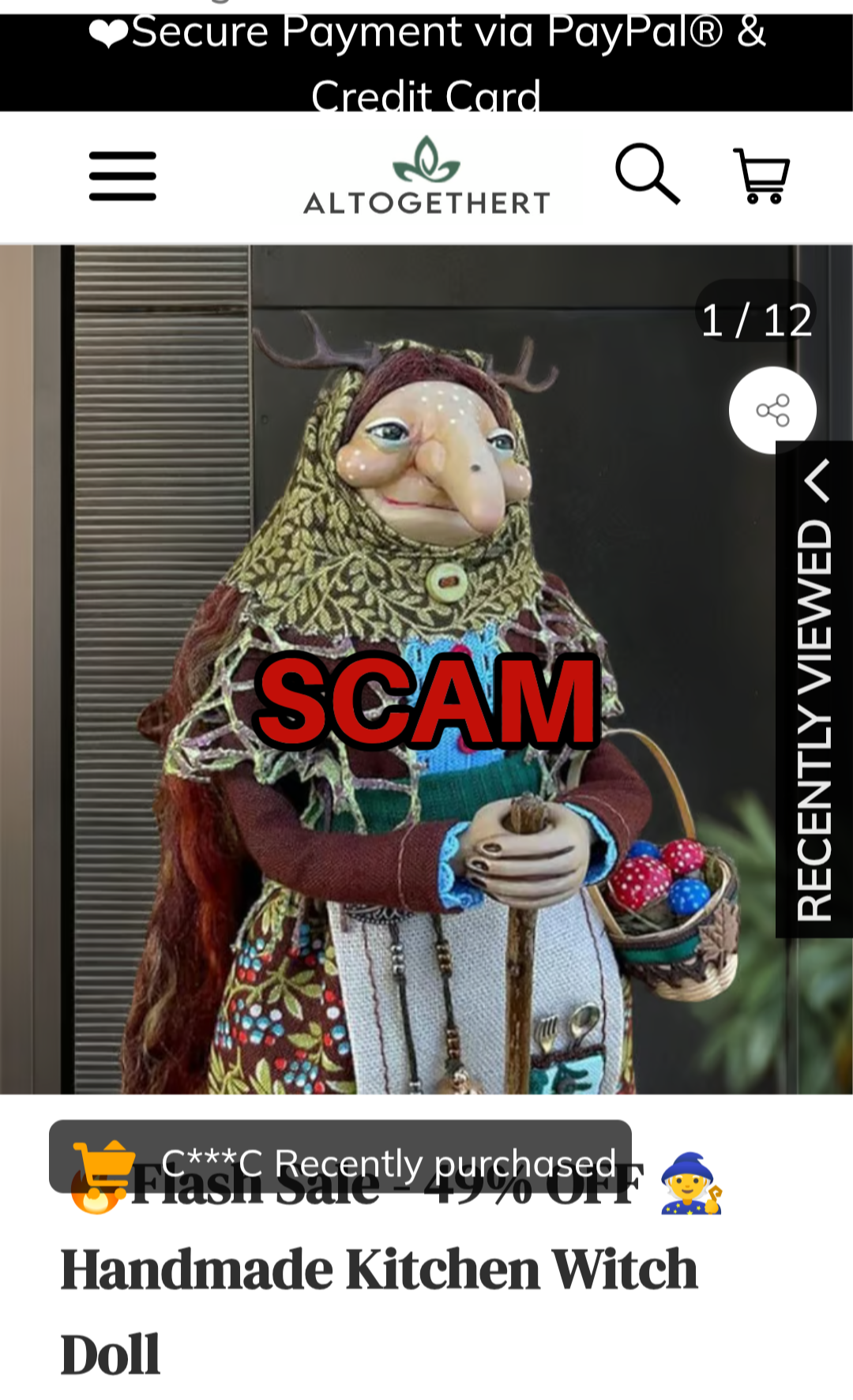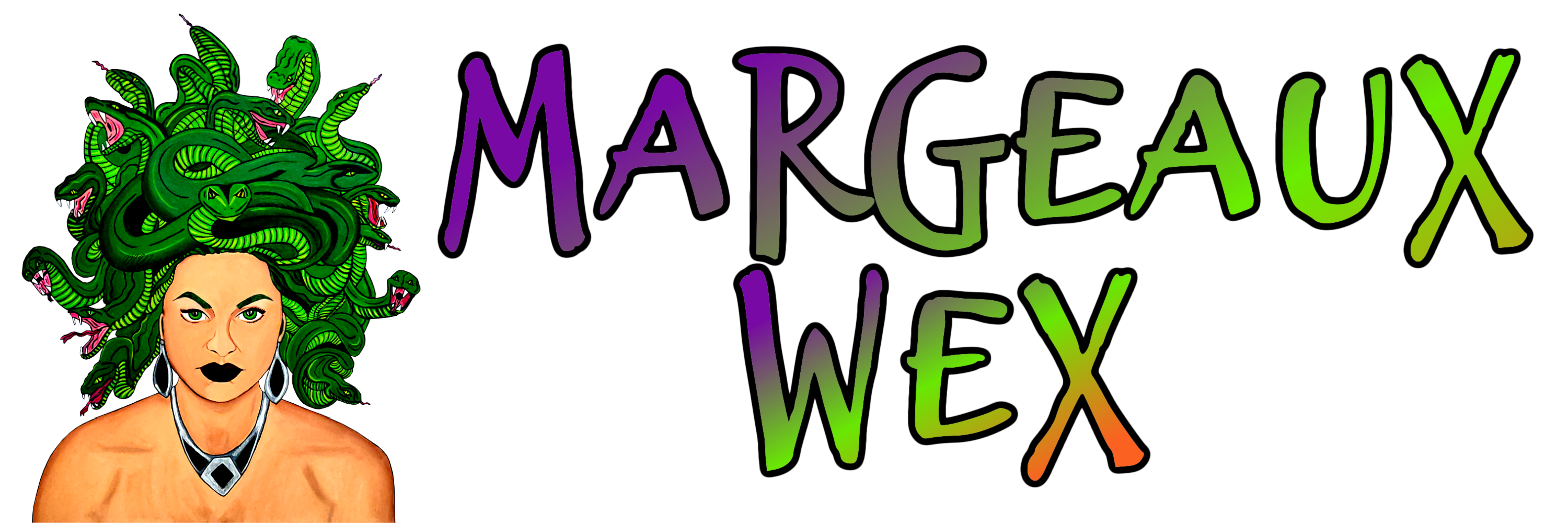Enforce Fair Trade Practices for E-commerce Platforms: Stop Artist Copyright Infringement

🚨 Scam Alert 🚨
The other day, I noticed an ad on Instagram for a kitchen witch made by my Insta friend @witchesforkitchens. But it wasn’t her ad—it was from a Chinese company that ripped off her designs and is now mass-producing an inferior version of her product. Some of the ads even use her own photos and marketing copy. Every one of her witches is handmade and one-of-a-kind, sold only through her Etsy shop.
For those who may not realize it, copyright infringement and intellectual property theft hurt artists, consumers, and small business owners alike. When someone copies an artist’s work without permission, it undermines the creativity, time, and effort that went into it. Artists depend on income from their original creations, and theft means lost sales, missed opportunities, and the devaluation of their art.
For consumers, it means getting flooded with cheap knockoffs that create confusion and reduce trust in legitimate sources. For small American businesses, it can mean unknowingly purchasing bootleg products from what seems like a legitimate wholesale source—only to discover later that it's a counterfeit item, resulting in lost revenue and reputation.
Copyright infringement stifles innovation and weakens the creative economy. It makes it harder for real artists to survive and for audiences to experience authentic, original work.
Sadly, this is happening all around us.
Social media platforms like Facebook and Instagram don’t verify or authenticate ads before running them. These platforms profit from promoting bootleg goods. For example, in 2024, Facebook reported $164.4 billion in revenue—$122 billion of that came from advertising. Ask yourself: how much of that came from ads for stolen designs and counterfeit products? I’d wager it’s a significant portion.
Websites like Temu, Shein, AliExpress, and countless pop-up stores routinely sell and promote counterfeit goods. These companies undercut prices, ignore MAP (Minimum Advertised Price) policies, and bypass the consumer protections that U.S. businesses are required to follow. Shoppers may think they’re getting a great deal—but when the item is stolen work, it’s the artist who pays the price. And often, these products are made under unethical conditions with low wages and poor labor standards. It’s a lose-lose for everyone—except the counterfeiters.
And it’s not just Chinese websites—Amazon has allowed thousands of knockoff products to flood their platform, often from the same companies. They profit from it all—on the backs of the artists whose work is stolen.
For consumers, this can be overwhelming and confusing. No one has time to verify the authenticity of every item they buy. But we should be able to count on major platforms to do that work before pushing products into our social media news feeds and shops.
How Can You Help?
1. Report counterfeit ads when you see them on social media.
2. Sign the petition: Enforce Fair Trade Practices for E-commerce Platforms: Stop Artist Copyright Infringement https://chng.it/52k6jz4fb8
(Instagram followers: link in my Linktree on my profile.)
3. Learn and get involved:
International AntiCounterfeiting Coalition https://iacc.org/
Copyright Alliance https://copyrightalliance.org/
4. Speak up: Share what you learn. Let others know how bootleg products hurt real artists.
Let’s work together to support the creators who make our world more beautiful, one piece at a time.
🎨✊
Thank you for taking the time to read this article. Please be sure to share with your friends so we can bring more awareness to this cause.
XO,
Margeaux Wex
